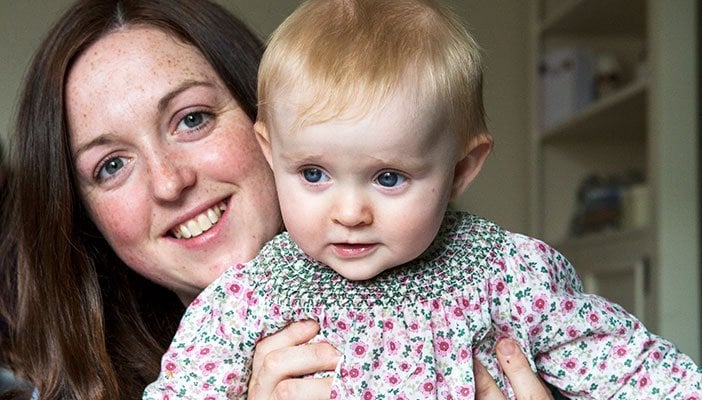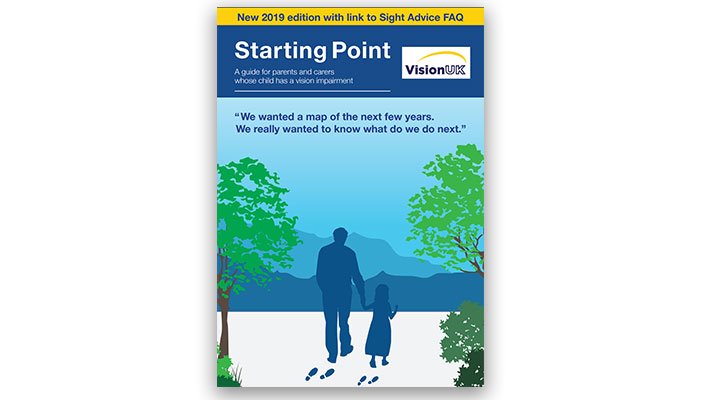Information for parents of children with vision impairment
Based on what parents would like to know, this section includes practical advice, ideas and contacts for parents and families of children with vision impairment.

Your child and vision impairment – first steps
We know it is a worrying time - there's no "normal" response to finding out your child has a sight condition - people respond in different ways. Here you will find important contacts and information to guide and support you with those first steps.
Our information and advice for parents is also available in a downloadable booklet for those who prefer offline or hard copy material:
Starting Point
Starting Point is a leaflet for parents of babies and children who are newly diagnosed with an eye condition. It has been produced by a collaboration of support charities and introduces Sight Advice FAQ which you can use to ask questions about your child’s diagnosis and the support and services available to you. Starting Point is given to families in eye clinics.
If you are a professional who would like to distribute the Starting Point leaflet to families you support please contact Guide Dogs at [email protected] to order copies.

Image: A cover of a starting point leaflet
Encouraging independence
There are many ways you can encourage independence, and help your child to move around more confidently, begin to look after their own needs and feel more confident at mealtimes. Your child may need to be taught skills that others do by imitation, and we tell you about the people who can help with this.
Learning and school
Children with vision impairment are entitled to support for their learning from birth onwards by a specialist teacher called a QTVI. If your child has complex needs, they will usually be supported in a special school in your local authority – find out more on education and learning.
Financial support
Find out about financial support, grants and allowances for families of children with a vision impairment.
Into Adulthood
We have advice and guidance for young people as they make the transition from school into further or higher education, employment and adult support services. See our Transitions section for more details.







